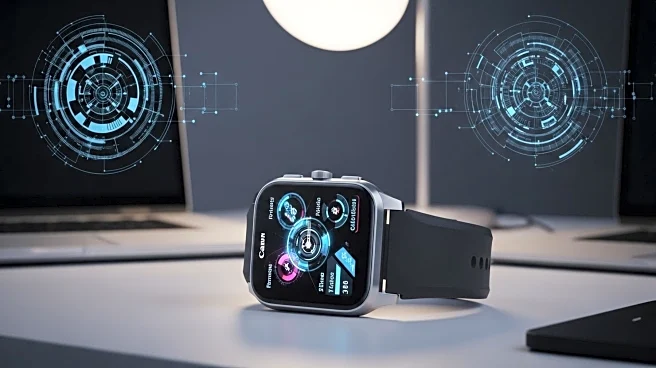What's Happening?
Tag Heuer, a luxury watchmaker, has developed its own Android-based smartwatch operating system, named 'Tag Heuer OS,' in response to Wear OS's diminishing support for iOS devices. This move comes as Samsung's Galaxy Watch and Google's Pixel Watch have explicitly stopped supporting iPhones, despite Google not officially removing iOS support. The challenges of connecting third-party smartwatches to iPhones, due to Apple's restrictive functionality, have prompted Tag Heuer to create an in-house platform that better supports iPhone connectivity. The new Tag Heuer Connected Calibre E5 smartwatch, running on Qualcomm's Snapdragon Wear 5100+ chipset, marks the company's shift away from Wear OS. The watch has received a 'Made-for-iPhone' certification, enhancing its compatibility with Apple devices. The smartwatch is priced starting at $1,900.
Why It's Important?
The development of Tag Heuer's proprietary smartwatch OS highlights the growing divide between Google's Wear OS and Apple's iOS ecosystem. As major brands like Samsung and Google move away from iOS compatibility, companies like Tag Heuer are compelled to innovate to maintain their market presence among iPhone users. This shift could influence other smartwatch manufacturers to consider similar strategies, potentially altering the competitive landscape in the wearable tech industry. The move also underscores the impact of Apple's restrictive policies on third-party device integration, which has been a point of contention in the tech industry, leading to regulatory scrutiny in regions like the EU.
What's Next?
Tag Heuer's decision to develop its own OS may prompt other luxury and tech brands to reassess their strategies regarding iOS compatibility. As the EU pushes Apple to open up iOS to third-party smartwatches, there could be further developments in regulatory policies affecting device interoperability. Additionally, consumer response to Tag Heuer's new smartwatch and its pricing will be crucial in determining the success of this strategic shift. The broader implications for the smartwatch market could include increased innovation and diversification in operating systems, as brands seek to balance compatibility with both Android and iOS platforms.
Beyond the Headlines
The creation of Tag Heuer's OS reflects broader trends in the tech industry, where companies are increasingly developing proprietary solutions to navigate ecosystem limitations. This move could lead to a more fragmented market, with consumers facing more choices but also potential compatibility challenges. The ethical considerations of Apple's restrictive policies and their impact on competition and innovation remain a significant discussion point, as regulatory bodies continue to evaluate the balance between proprietary control and market fairness.










